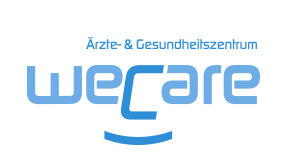Physiotherapy
General information on physiotherapy
In order to achieve the success of the therapy, which has been defined as the common goal, we take time for a precise assessment of your physical limitations, pain conditions or your desire to work prophylactically on your musculoskeletal system. In our individual therapy sessions we address sports injuries, spinal disorders, posture problems and other complaints individually. In addition to some classic active and passive techniques, we extend our therapy sessions with special treatment methods such as K-Taping.




